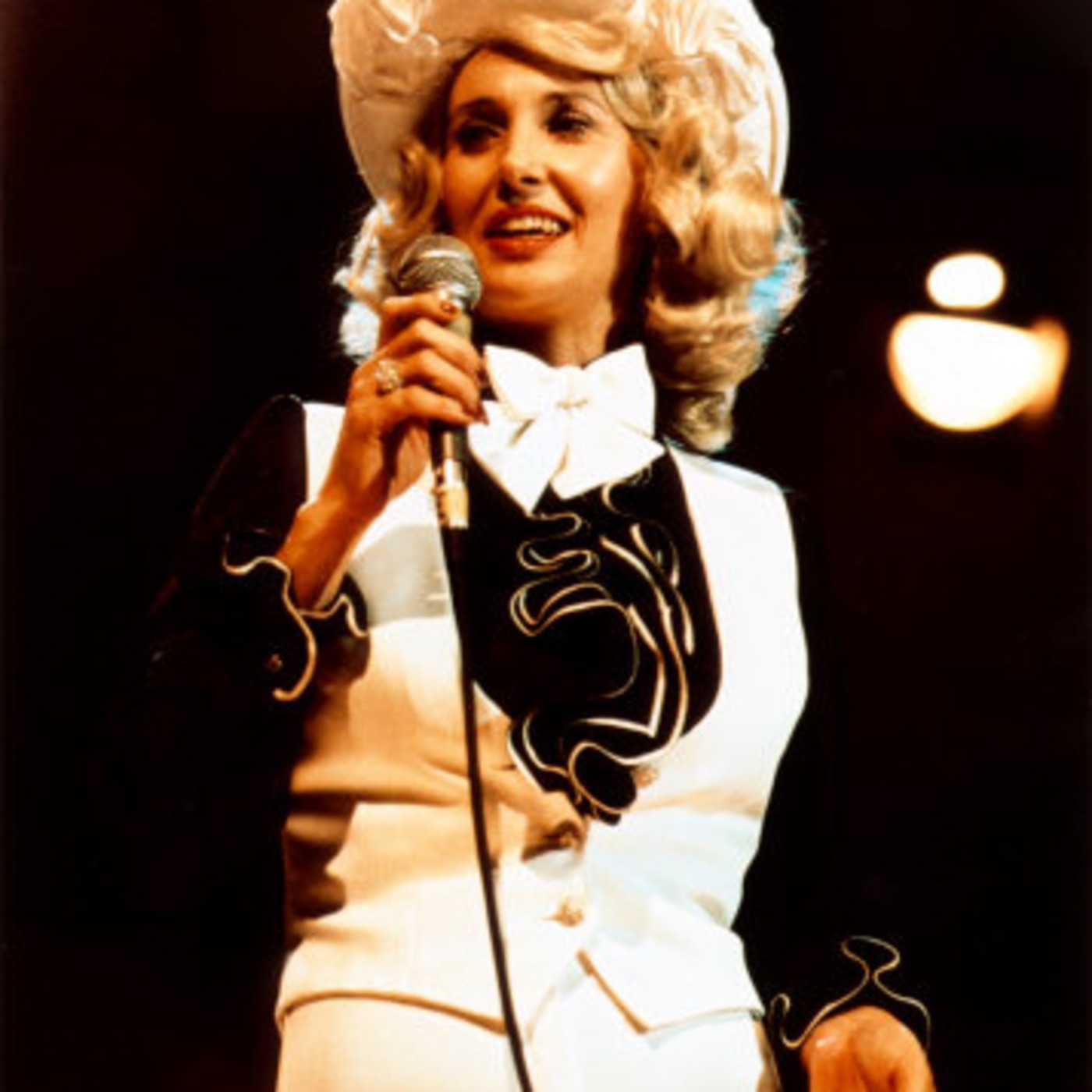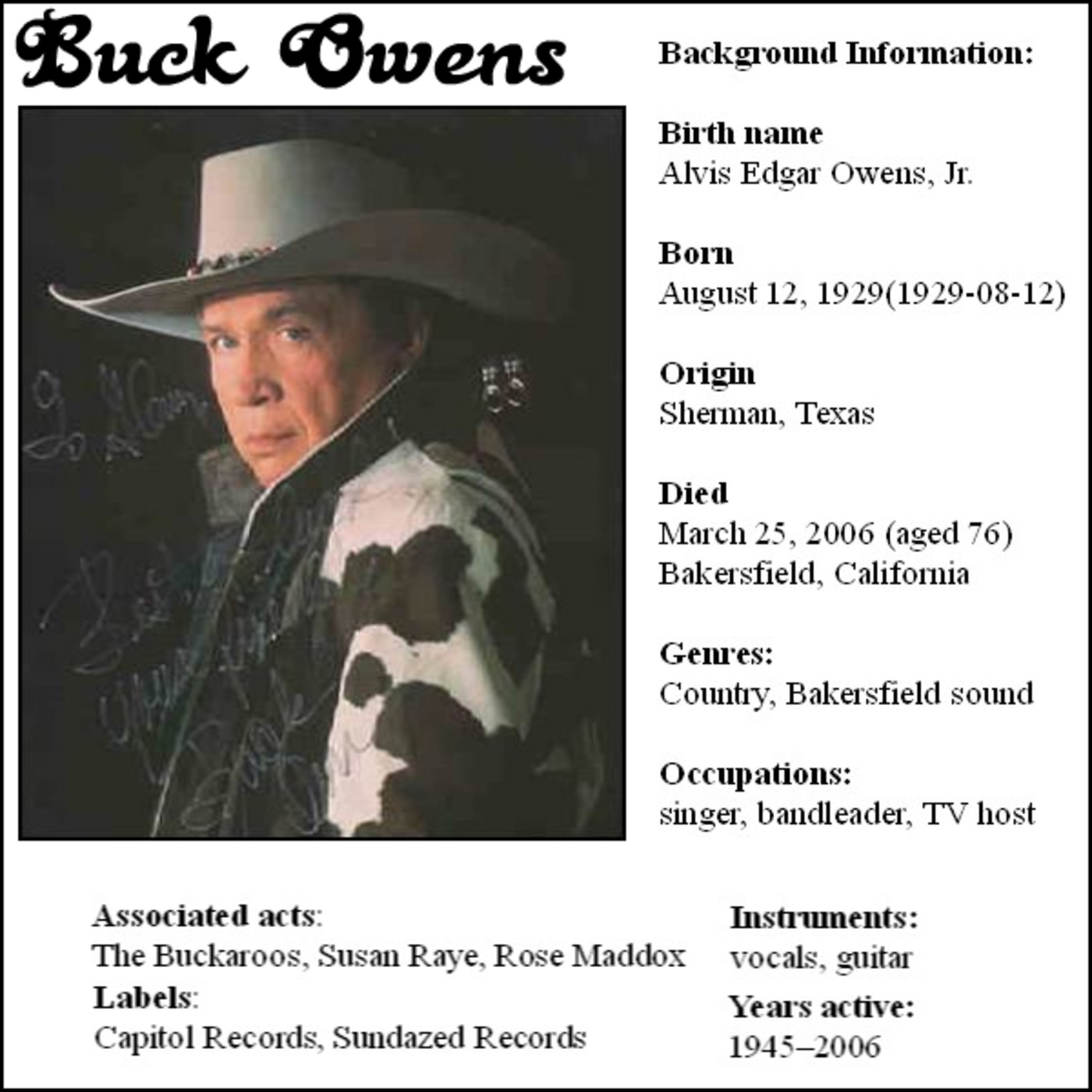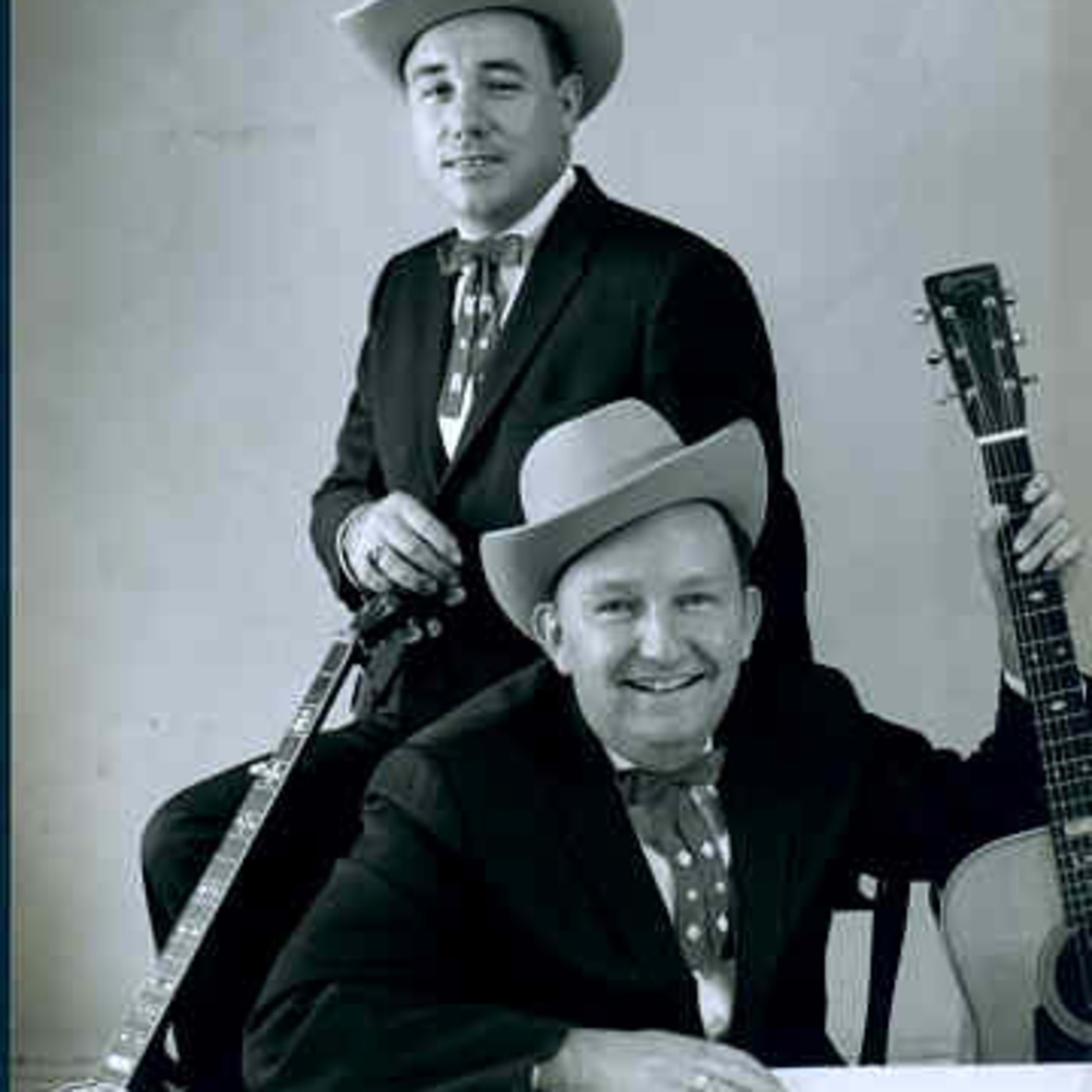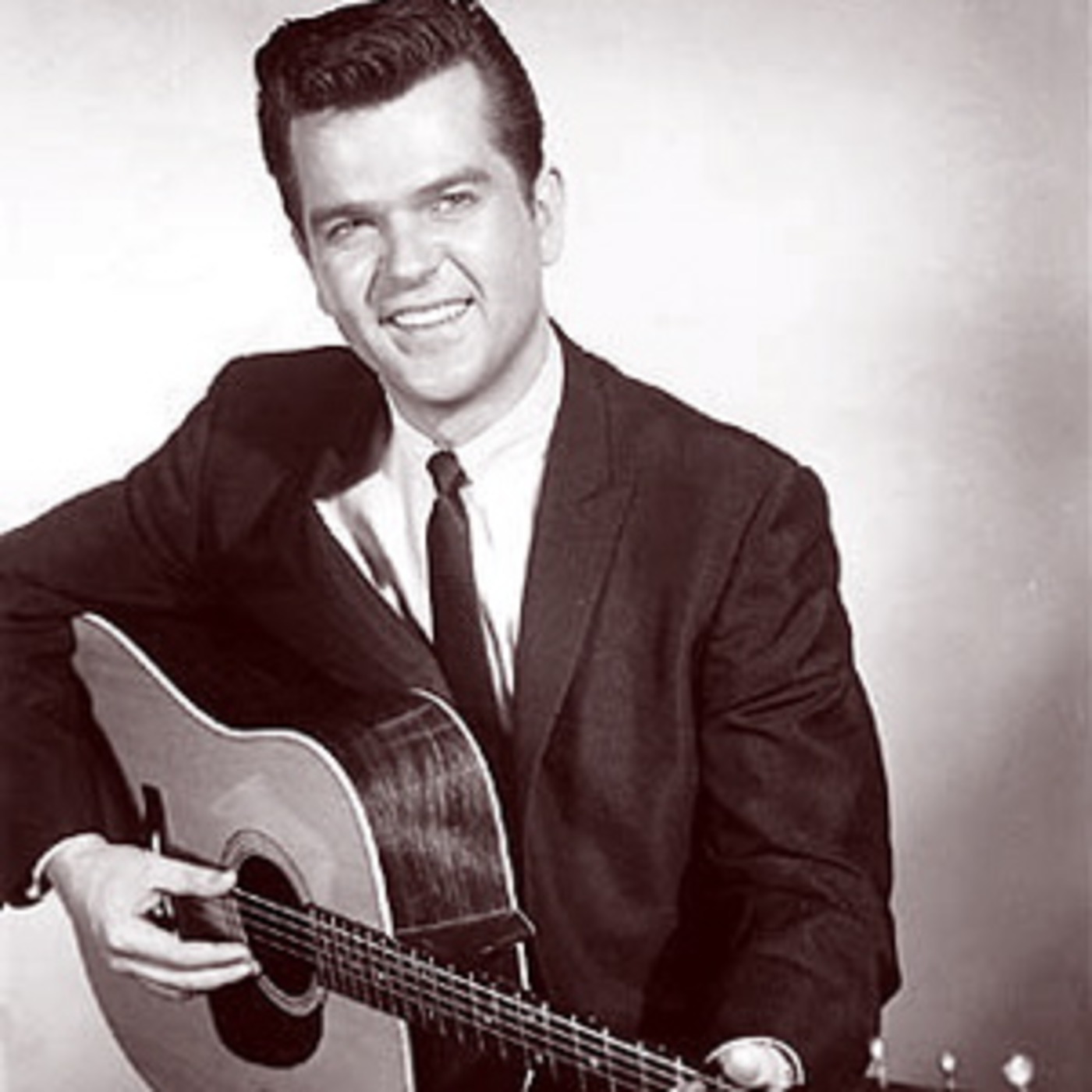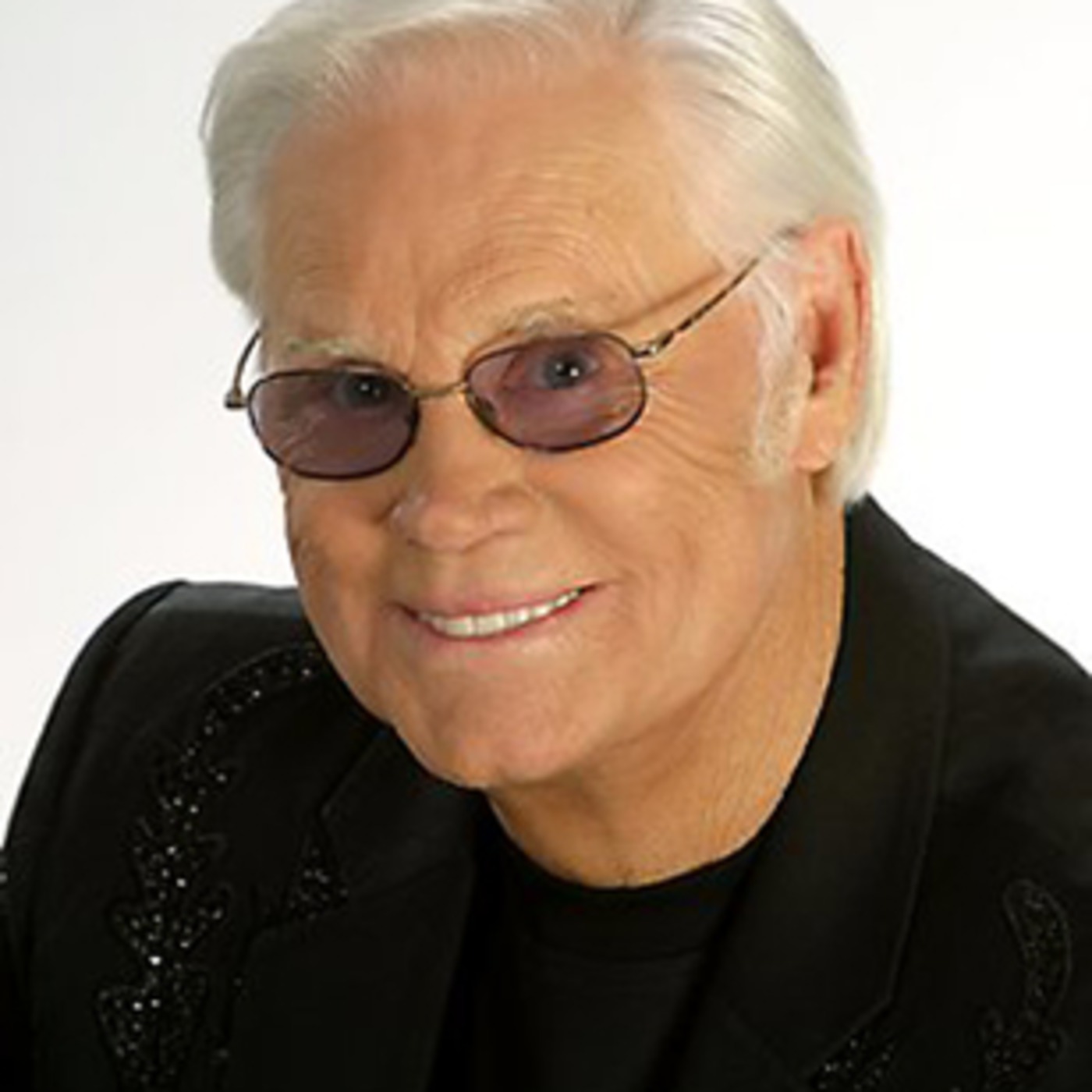Tammy Wynette - Stand By Your Man
Update: 2010-06-08
Description
From Wikipedia, the free encyclopedia
Virginia Wynette Pugh, known professionally as Tammy Wynette (May 5, 1942 – April 6, 1998), was an American country music singer-songwriter and one of country music's best-known artists and biggest-selling female vocalists.
She was known as the First Lady of Country Music, and one of her best-known songs, "Stand by Your Man," was one of the biggest selling hit singles by a woman in the history of the country music genre. Many of Tammy Wynette's hits dealt with classic themes of loneliness, divorce and the difficulties of male-female relationships. During the late 1960s and early 1970s, she dominated the country charts, scoring 17 number one hits. Along with Loretta Lynn and Dolly Parton, she defined the role of female country vocalists in the 1970s.
Her 1969 marriage to country singer George Jones (which would end in divorce in 1975) created country music's "first couple." The pair recorded a series of duet albums and singles, which charted throughout the 1970s, concurrent to their respective solo hits.
Early years
Childhood & teen years
Tammy Wynette was born Virginia Wynette Pugh near Tremont, Mississippi, the only child of William Hollice Pugh (died February 13, 1943) and Mildred Faye Russell (1922 – 1991). She was always called Wynette (pronounced Win-net), or Nettie, instead of Virginia.
Her father was a farmer and local musician. He died of a brain tumor when Wynette was nine months of age. Her mother worked in an office, as a substitute school teacher, as well as on the family farm. After the death of Hollice Pugh, she left Wynette in the care of her grandparents, Thomas Chester and Flora A. Russell, and moved to Memphis to work in a World War II defense plant. In 1946, she married Foy Lee, a farmer from Mississippi.
Wynette was born and raised on the Itawamba County, Mississippi farm of her maternal grandparents. The property was located on the border with Alabama. Wynette claimed that the state line ran right through their property, joking "my top half came from Alabama and my bottom half came from Mississippi". As a youngster, she worked in the fields picking cotton alongside the hired crews to get in the crop. She grew up with her aunt, Carolyn Russell, who was only five years older than she was. As a child, Wynette taught herself to play a variety of instruments left behind by her father.[1] Wynette also sang Gospel music with her grandmother, a genre Wynette grew to liking, idolizing certain Gospel vocalists like '40s Gospel/Country star, Molly O' Day.
As a child and teenager, she found in country music an escape from her hard life. Wynette grew up idolizing Hank Williams, Skeeter Davis, Patsy Cline, and George Jones, and would play their records over and over on the children's record player she owned, dreaming of one day being a star herself.
Rise to fame
She attended Tremont High School, where she was an all-star basketball player[citation needed]. A month before graduation, she married her first husband, Euple Byrd. He was a construction worker, but had trouble holding down a job, and they moved several times. One of their homes had no running water. She worked as a waitress, receptionist, and a barmaid, and also worked in a shoe factory. In 1963, she attended beauty school in Tupelo, Mississippi, and became a hairdresser; she would renew her cosmetology license every year for the rest of her life, just in case she should have to go back to a daily job. She left her first husband before the birth of their third daughter. He did not support her ambition to become a country singer, and, according to Wynette, told her "Dream on, Baby."
Her baby developed spinal meningitis and Wynette tried to make extra money by performing at night. In 1965, Wynette sang on the Country Boy Eddie Show on WBRC-TV in Birmingham, Alabama, which led to appearances with Porter Wagoner. In 1966, she moved with her three girls from Birmingham to Nashville, Tennessee, where she attempted to get a recording contract. After being turned down repeatedly by every other record company she'd met with, she auditioned for producer Billy Sherrill. Sherrill, who was originally reluctant to sign her, decided to do so after finding himself in need of a singer to cover "Apartment No. 9". When Sherrill heard Wynette sing it, he was impressed and decided to sign her to Epic Records in 1966.
Music career
1966 – 1979: Breakthrough
Once she was signed to Epic, Sherrill suggested she change her name to make more of an impression. According to her 1979 memoir, Stand by Your Man, during their meeting, Wynette was wearing her long, blonde hair in a ponytail, and Sherill noted that she reminded him of Debbie Reynolds in the film Tammy and the Bachelor, and suggested "Tammy" as a possible name; thus she became Tammy Wynette.
Her first single, "Apartment No. 9" (written by Bobby Austin and Johnny Paycheck), was released in December 1966, and just missed the Top 40 on the Country charts, peaking at No. 44. It was followed by "Your Good Girl's Gonna Go Bad," which became a big hit, peaking at number three. The song launched a string of Top Ten hits that ran through the end of the '70s, interrupted only by three singles that didn't crack the Top Ten. After "Your Good Girl's Gonna Go Bad" was a success, "My Elusive Dreams", a duet with David Houston, became her first number one in the summer of 1967, followed by "I Don't Wanna Play House" later that year. "I Don't Wanna Play House" won Wynette a Grammy award in 1967 for Best Female Country Vocal Performance, one of two wins for Wynette in that category.
During 1968 and 1969, Wynette had five number one hits — "Take Me to Your World," "D-I-V-O-R-C-E," "Stand by Your Man" (all 1968), "Singing My Song," and "The Ways to Love a Man" (both 1969).[1] "Stand by Your Man" was reportedly written in the Epic studio in just 15 minutes by Billy Sherrill and Wynette, and was released at a time when the women's rights movement was beginning to stir in the U.S. The message in the song stated that a woman should stay with her man, despite his faults and shortcomings. It stirred up controversy and was criticized initially, and it became a lightning rod for feminists. However, the song became very successful, reaching the top spot on the Country charts, and was also a Top 20 pop hit, peaking at No. 19 on the Billboard pop charts in 1968, Wynette's only Top 40 hit as a solo artist on the pop charts. In 1969, Wynette won the Grammy award for Best Female Country Vocal Performance for "Stand by Your Man", and has now been according to critics, considered a "classic" or Country music "standard".
Wynette earned a Gold record (awarded for albums selling in excess of 500,000 copies) for Tammy's Greatest Hits which was certified in 1970 by the RIAA. The album would later be awarded Platinum record status (awarded for albums selling in excess of 1,000,000 copies) in June 1989. In 1970, director Bob Rafelson used a number of her songs in the soundtrack of his 1970 film Five Easy Pieces.
During the early 1970s, Wynette, along with singer Loretta Lynn, ruled the country charts and was one of the most successful female vocalists of the genre. During the early 1970s, number one singles included "He Loves Me All the Way" "Run Woman, Run" and "The Wonders You Perform" (all from 1970), "Good Lovin' (Makes it Right)", "Bedtime Story" (both 1971) "My Man (Understands)", "'Til I Get it Right" (1972), and "Kids Say the Darndest Things" (1973). One of them, "The Wonders You Perform", was a hit in Italy in 1971, thanks to Ornella Vanoni,who recorded the song in an Italian version, "Domani è un altro giorno" ("Tomorrow is another day"). Concurrent to her solo success, a number of her duets with Jones reached the top ten on the U.S. country singles charts during this time, including "The Ceremony" (1972), "We're Gonna Hold On" (1973), and "Golden Ring (1975). In 1968, Wynette became the second female vocalist to win the Country Music Association Awards' "Female Vocalist of the Year" award, later winning an additional two other times (1969 and 1970). For nearly two decades, Wynette held the record for most consecutive wins, until 1987 when Reba McEntire won the award for the fourth consecutive time.
Wynette was married to George Jones from 1969 - 75 (she had divorced her second husband in 1968). Even after their 1975 divorce (due largely to Jones' alcoholism), their professional collaboration continued with regularity through 1980; years later in 1995, they made a reunion album entitled One . It was well received, although it didn't achieve their earlier chart success. Jones and Wynette had one daughter together, Tamala Georgette, born in 1970.
In 1976, after having her public divorce from Jones the previous year, Wynette recorded, "'Til I Can Make It on My Own". Often said by music critics to be about her break-up from Jones and moving on with her life, the song reached No. 1 on the U.S. country singles charts, and No. 84 on the pop singles charts, becoming her first single in eight years to enter the pop charts. Often considered to be one of her signature songs, it more or less helped Wynette's career after her divorce, showing she could remain popular. It was recorded two years later as a duet by Kenny Rogers and Dottie West, whose version reached No. 3 on the country singles charts in 1979. In 1976, Wynette had another No. 1 as a solo artist, "You and Me", which became her final No. 1 as a solo artist. Her last No. 1 came as a duet with George Jones in early 1977 titled, "Near You".
Following 1976, Wynette's popularity slightly slowed, however, she continued to reach the Top 10 until the end of the decade, with such hits as "Let's Get Together (One Last Time), "One of a Kind" (both 1977), "Womanhood" (1978) "No One Else in this World" and "They Call It Makin' Love" (both 1979). She had a total of 21 number one hits on the U.S. country singles charts (17 solo, three with Jones, and o
Virginia Wynette Pugh, known professionally as Tammy Wynette (May 5, 1942 – April 6, 1998), was an American country music singer-songwriter and one of country music's best-known artists and biggest-selling female vocalists.
She was known as the First Lady of Country Music, and one of her best-known songs, "Stand by Your Man," was one of the biggest selling hit singles by a woman in the history of the country music genre. Many of Tammy Wynette's hits dealt with classic themes of loneliness, divorce and the difficulties of male-female relationships. During the late 1960s and early 1970s, she dominated the country charts, scoring 17 number one hits. Along with Loretta Lynn and Dolly Parton, she defined the role of female country vocalists in the 1970s.
Her 1969 marriage to country singer George Jones (which would end in divorce in 1975) created country music's "first couple." The pair recorded a series of duet albums and singles, which charted throughout the 1970s, concurrent to their respective solo hits.
Early years
Childhood & teen years
Tammy Wynette was born Virginia Wynette Pugh near Tremont, Mississippi, the only child of William Hollice Pugh (died February 13, 1943) and Mildred Faye Russell (1922 – 1991). She was always called Wynette (pronounced Win-net), or Nettie, instead of Virginia.
Her father was a farmer and local musician. He died of a brain tumor when Wynette was nine months of age. Her mother worked in an office, as a substitute school teacher, as well as on the family farm. After the death of Hollice Pugh, she left Wynette in the care of her grandparents, Thomas Chester and Flora A. Russell, and moved to Memphis to work in a World War II defense plant. In 1946, she married Foy Lee, a farmer from Mississippi.
Wynette was born and raised on the Itawamba County, Mississippi farm of her maternal grandparents. The property was located on the border with Alabama. Wynette claimed that the state line ran right through their property, joking "my top half came from Alabama and my bottom half came from Mississippi". As a youngster, she worked in the fields picking cotton alongside the hired crews to get in the crop. She grew up with her aunt, Carolyn Russell, who was only five years older than she was. As a child, Wynette taught herself to play a variety of instruments left behind by her father.[1] Wynette also sang Gospel music with her grandmother, a genre Wynette grew to liking, idolizing certain Gospel vocalists like '40s Gospel/Country star, Molly O' Day.
As a child and teenager, she found in country music an escape from her hard life. Wynette grew up idolizing Hank Williams, Skeeter Davis, Patsy Cline, and George Jones, and would play their records over and over on the children's record player she owned, dreaming of one day being a star herself.
Rise to fame
She attended Tremont High School, where she was an all-star basketball player[citation needed]. A month before graduation, she married her first husband, Euple Byrd. He was a construction worker, but had trouble holding down a job, and they moved several times. One of their homes had no running water. She worked as a waitress, receptionist, and a barmaid, and also worked in a shoe factory. In 1963, she attended beauty school in Tupelo, Mississippi, and became a hairdresser; she would renew her cosmetology license every year for the rest of her life, just in case she should have to go back to a daily job. She left her first husband before the birth of their third daughter. He did not support her ambition to become a country singer, and, according to Wynette, told her "Dream on, Baby."
Her baby developed spinal meningitis and Wynette tried to make extra money by performing at night. In 1965, Wynette sang on the Country Boy Eddie Show on WBRC-TV in Birmingham, Alabama, which led to appearances with Porter Wagoner. In 1966, she moved with her three girls from Birmingham to Nashville, Tennessee, where she attempted to get a recording contract. After being turned down repeatedly by every other record company she'd met with, she auditioned for producer Billy Sherrill. Sherrill, who was originally reluctant to sign her, decided to do so after finding himself in need of a singer to cover "Apartment No. 9". When Sherrill heard Wynette sing it, he was impressed and decided to sign her to Epic Records in 1966.
Music career
1966 – 1979: Breakthrough
Once she was signed to Epic, Sherrill suggested she change her name to make more of an impression. According to her 1979 memoir, Stand by Your Man, during their meeting, Wynette was wearing her long, blonde hair in a ponytail, and Sherill noted that she reminded him of Debbie Reynolds in the film Tammy and the Bachelor, and suggested "Tammy" as a possible name; thus she became Tammy Wynette.
Her first single, "Apartment No. 9" (written by Bobby Austin and Johnny Paycheck), was released in December 1966, and just missed the Top 40 on the Country charts, peaking at No. 44. It was followed by "Your Good Girl's Gonna Go Bad," which became a big hit, peaking at number three. The song launched a string of Top Ten hits that ran through the end of the '70s, interrupted only by three singles that didn't crack the Top Ten. After "Your Good Girl's Gonna Go Bad" was a success, "My Elusive Dreams", a duet with David Houston, became her first number one in the summer of 1967, followed by "I Don't Wanna Play House" later that year. "I Don't Wanna Play House" won Wynette a Grammy award in 1967 for Best Female Country Vocal Performance, one of two wins for Wynette in that category.
During 1968 and 1969, Wynette had five number one hits — "Take Me to Your World," "D-I-V-O-R-C-E," "Stand by Your Man" (all 1968), "Singing My Song," and "The Ways to Love a Man" (both 1969).[1] "Stand by Your Man" was reportedly written in the Epic studio in just 15 minutes by Billy Sherrill and Wynette, and was released at a time when the women's rights movement was beginning to stir in the U.S. The message in the song stated that a woman should stay with her man, despite his faults and shortcomings. It stirred up controversy and was criticized initially, and it became a lightning rod for feminists. However, the song became very successful, reaching the top spot on the Country charts, and was also a Top 20 pop hit, peaking at No. 19 on the Billboard pop charts in 1968, Wynette's only Top 40 hit as a solo artist on the pop charts. In 1969, Wynette won the Grammy award for Best Female Country Vocal Performance for "Stand by Your Man", and has now been according to critics, considered a "classic" or Country music "standard".
Wynette earned a Gold record (awarded for albums selling in excess of 500,000 copies) for Tammy's Greatest Hits which was certified in 1970 by the RIAA. The album would later be awarded Platinum record status (awarded for albums selling in excess of 1,000,000 copies) in June 1989. In 1970, director Bob Rafelson used a number of her songs in the soundtrack of his 1970 film Five Easy Pieces.
During the early 1970s, Wynette, along with singer Loretta Lynn, ruled the country charts and was one of the most successful female vocalists of the genre. During the early 1970s, number one singles included "He Loves Me All the Way" "Run Woman, Run" and "The Wonders You Perform" (all from 1970), "Good Lovin' (Makes it Right)", "Bedtime Story" (both 1971) "My Man (Understands)", "'Til I Get it Right" (1972), and "Kids Say the Darndest Things" (1973). One of them, "The Wonders You Perform", was a hit in Italy in 1971, thanks to Ornella Vanoni,who recorded the song in an Italian version, "Domani è un altro giorno" ("Tomorrow is another day"). Concurrent to her solo success, a number of her duets with Jones reached the top ten on the U.S. country singles charts during this time, including "The Ceremony" (1972), "We're Gonna Hold On" (1973), and "Golden Ring (1975). In 1968, Wynette became the second female vocalist to win the Country Music Association Awards' "Female Vocalist of the Year" award, later winning an additional two other times (1969 and 1970). For nearly two decades, Wynette held the record for most consecutive wins, until 1987 when Reba McEntire won the award for the fourth consecutive time.
Wynette was married to George Jones from 1969 - 75 (she had divorced her second husband in 1968). Even after their 1975 divorce (due largely to Jones' alcoholism), their professional collaboration continued with regularity through 1980; years later in 1995, they made a reunion album entitled One . It was well received, although it didn't achieve their earlier chart success. Jones and Wynette had one daughter together, Tamala Georgette, born in 1970.
In 1976, after having her public divorce from Jones the previous year, Wynette recorded, "'Til I Can Make It on My Own". Often said by music critics to be about her break-up from Jones and moving on with her life, the song reached No. 1 on the U.S. country singles charts, and No. 84 on the pop singles charts, becoming her first single in eight years to enter the pop charts. Often considered to be one of her signature songs, it more or less helped Wynette's career after her divorce, showing she could remain popular. It was recorded two years later as a duet by Kenny Rogers and Dottie West, whose version reached No. 3 on the country singles charts in 1979. In 1976, Wynette had another No. 1 as a solo artist, "You and Me", which became her final No. 1 as a solo artist. Her last No. 1 came as a duet with George Jones in early 1977 titled, "Near You".
Following 1976, Wynette's popularity slightly slowed, however, she continued to reach the Top 10 until the end of the decade, with such hits as "Let's Get Together (One Last Time), "One of a Kind" (both 1977), "Womanhood" (1978) "No One Else in this World" and "They Call It Makin' Love" (both 1979). She had a total of 21 number one hits on the U.S. country singles charts (17 solo, three with Jones, and o
Comments
In Channel

